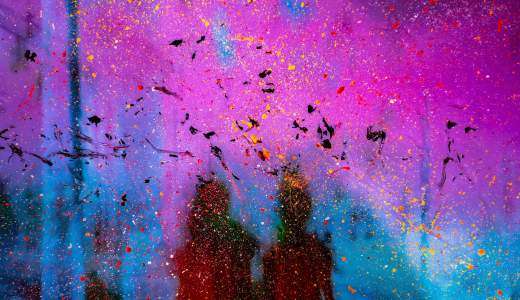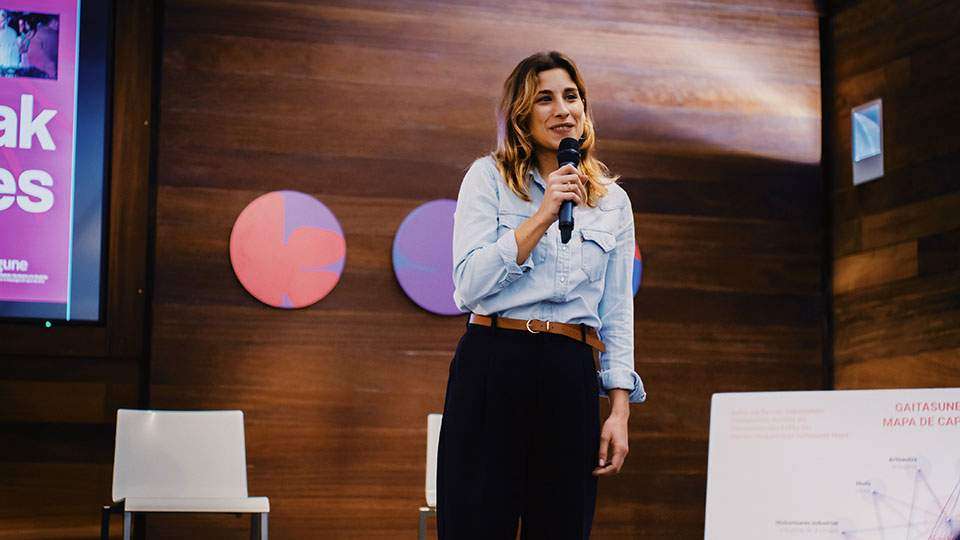Ruth Mayoral, Head of Higher Education Programmes at Euskampus Fundazioa and Operational Manager of KSIgune, shares the keys to the Euroregional project that aims to boost the audiovisual sector in the Basque Country, Navarre and New Aquitaine.
What is the Euroregional Green Audiovisual Hub and what does it aim to achieve?
Ruth M.: This initiative aims to provide a common framework and tools for the entire audiovisual ecosystem in the Basque Country, Navarre and New Aquitaine, based on the understanding that we share a culture, a history of collaboration, and that our needs as an ecosystem are similar in all three territories.
What is KSIgune’s role in this international project?
Ruth M.: KSIgune is a Basque cluster that focuses on higher education and research for the cultural and creative industries in the Basque Country.
It was KSIgune that initiated the Euroregional Green Audiovisual Hub, and in this sense, it leads the project. First, we share certain structures and ways of building value, based on the vision of bringing academia, society, administrations and business together in a specific field, in this case audiovisual. And KSIgune not only coordinates the project; it also deals more specifically with the field of academia. The experience gained over the years in the Basque Country is now being used to serve our Euroregion as a whole.
What does the cooperation of the Euroregional consortium of KSIgune, CLAVNA and Pôle Image Magelis involve?
Ruth M.: Among other things, it involves the creation of a common language, the search for proposals and also for more far-reaching solutions, not by duplicating efforts, but by taking into account what is already being done in other territories.
In other words, we aspire to be able to create a unique response to certain challenges in the Euroregional audiovisual ecosystem, i.e. challenges inherent in the sector, but also in audiovisual education and training, territorial strategies and the impact on society.
Now, in the short term, and considering that it is still early stages, our aim is to start laying the foundations of all of this: to activate the people and entities that make up the ecosystem, to create meeting spaces, to share knowledge and practices in a systematic way. This model arises from a need that we previously identified and, in that sense, we hope that it will provide a useful response.
Why the "green" approach?
Ruth M.: The ecological challenge is not so much a problem as a turning point that marks a global before and after. This initiative is based on a commitment to this evidence and on the assumption that each organisation has a more or less limited, more or less relevant scope of action from their own positions.
In more practical terms, the three territories have been working on different projects relating to the sector’s impact on the environment; not only from the point of view of its footprint, but also in terms of the need for new professional profiles in the industry that consider this issue and, for example, can promote production in a more sustainable way, having less impact or even contributing to sustainability.
“Green” is a challenge and an interest that we all share, that we all feel challenged by and something we can all get behind. We hope, however, that the evolution of the initiative itself will lead us to integrate this issue into the Hub’s way of working and that we will be able to address various challenges, both global and specific to the sector.
______
More information: Euroregional Green Audiovisual Hub
Current issues related news
-

Culture and Science: the driving force behind Basque innovation
ksiGuneWhen talking about innovation, the conversation often revolves around technology, patents and industrial competitiveness. However, there is one piece that remains in the shadows: Culture. Not only…
-

Tailor-made innovation for the arts, culture and creativity
ksiGuneIn 2025, KSIgune promoted a boot camp, two training and research calls, and a sectoral meeting, supporting 10 new collaboration initiatives to bring innovation to businesses and make an impact on the…
-

Konexioak 2025: your chance to create and make an impact
ksiGuneIf you study, research or work contributing to the advancement of the Arts, Culture and creative disciplines such as Architecture, Fashion or Gastronomy in the Basque Country, and you want to become…

